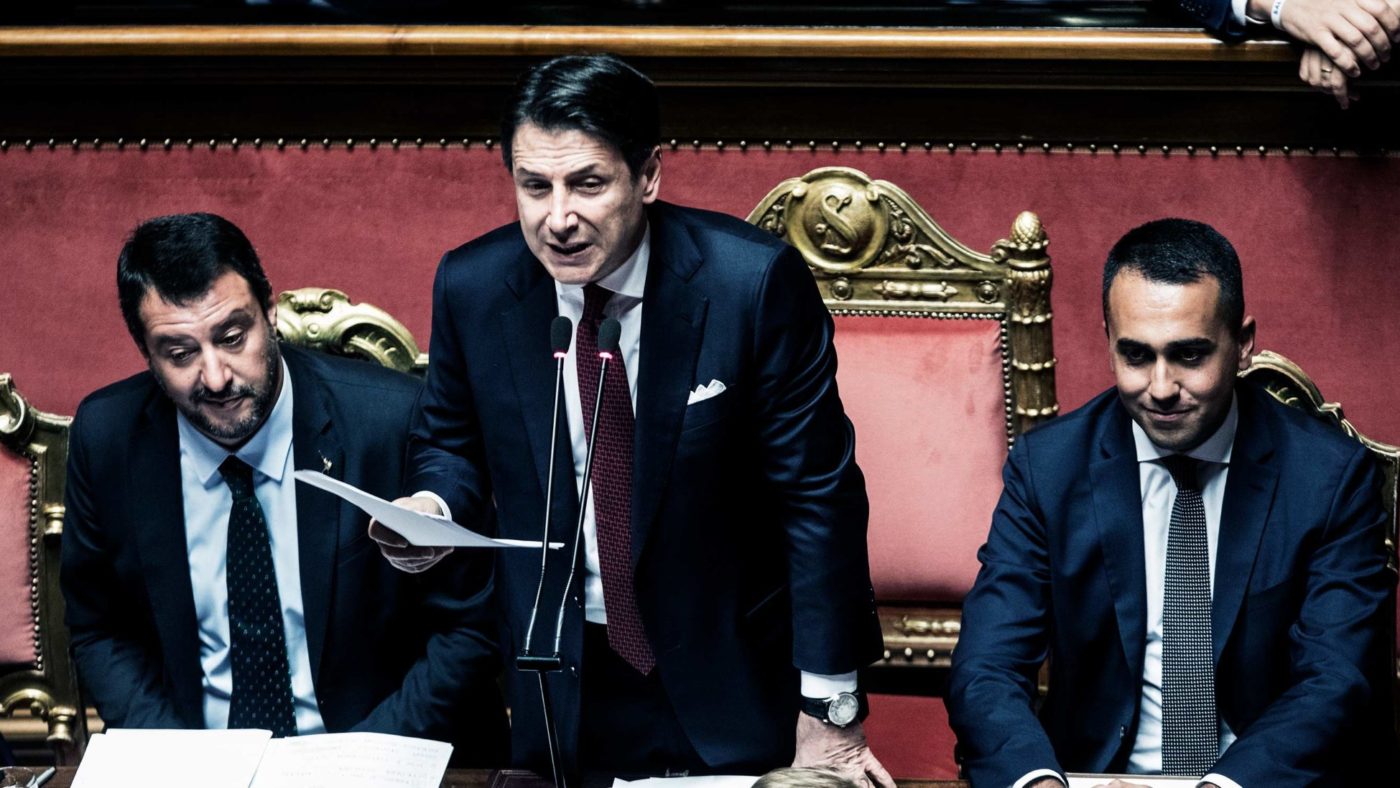If Brussels did not have enough on its plate with the prospect of a No Deal Brexit, preparations for its new institutional cycle and long-term budget negotiations, there is now a political crisis in Italy, one of the EU’s founding members.
The populist coalition between the Five Star Movement and the Lega managed to stay in government for only 14 months, before Lega’s Interior Minister Matteo Salvini pulled the plug on 8 August, hoping to trigger a snap election and lead the next government without Five Star. Prime Minister Giuseppe Conte, a lawyer who is from neither party, handed in his resignation yesterday. The Italian President Sergio Mattarella will hold consultations over the next days to figure out the way forward.
In May’s European Parliament elections Lega ended with 34.3%, almost double its results in the 2018 general election. In recent weeks it has been polling around 36-39%. Meanwhile, Five Star, who won last year’s general election, has seen its ratings drop to around 16%. It’s no surprise that Salvini feels like the balance has changed and this needs to be reflected in a new election. If joined by the far-right Brothers of Italy and Silvio Berlusconi’s centre-right Forza Italia, a right-wing government in Italy led by Lega is highly likely.
The prospect of an election and a Salvini government is worrying for Brussels. In mid-October Italy’s government has to present a new 2020 budget which is compatible with EU budgetary rules and the Italian parliament must approve it before the end of the year. Salvini’s rhetoric has so far not been reassuring. Although he no longer seems to be advocating exiting the Euro, there have been suggestions in his entourage that he could return to this idea if he leads a majority government. What’s more, his plan for lower taxes if Lega gets to write its own budget would breach Brussels rules.
Beyond the immediate political turmoil, there are serious economic growth and demographic problems which make Italy a more complicated puzzle for the EU. The country’s debt stands at about 130% of GDP, and the government will need to avoid the prospect of January’s automatic hike in VAT, which would hurt Italian consumers and put more pressure on an already struggling economy. There’s a lot at stake here – Italy is the third largest economy in the Eurozone and definitely comes under the “too big to fail” category.
Salvini has also been pushing a hard line on migration from outside the EU, refusing to take in asylum seekers stranded in the Mediterranean and insisting that the ships disembark in other member states. The most recent case with the Open Arms ship has generated a considerable amount of frustration in countries like Spain, which was urged by Salvini to welcome the vessel.
At the same time, a snap general election in Rome is by no means inevitable. In fact, Salvini’s call for elections seems to have encouraged the other parties (except the Brothers of Italy) to cooperate at his expense. The centre-left Democratic Party (PD) and the Five Star Movement could forge a partnership for a temporary pro-EU government. If Forza Italia also joins it, it could be a German-style coalition uniting the left and right, known as the “Ursula option” as these parties supported Ursula von der Leyen’s nomination for EU Commission President, while Lega opposed it.
These coalitions would be challenging, given the previous rivalries, especially between Five Star star and the PD. But the timing of the budget and the importance of having a government that avoids a crisis with Brussels gives both sides the excuse to strike a deal. The PD’s leader, Nicola Zingaretti, is open to the idea, but has set out some red lines for talks with Five Star, including ‘loyal membership of the EU’.
If Lega does end up in opposition, its narrative of being sidelined by a technocratic ‘stitch-up’ will be strengthened. Salvini has already promised to launch street protests until new elections are held, adding another headache to the instability. He is also likely to play on the fear that a government without Lega will re-open Italian ports to thousands of migrants from the Mediterranean. One way or another, Lega looks set to be a permanent fixture of Italian politics for the medium term.
Even in a scenario of a Five Star – PD coalition, which Brussels would definitely prefer, there is uncertainty about Italy’s position in the EU. The autumn brings a crunch October summit, with Brexit, trade tensions with the US, and negotiations on the Multi-annual Financial Framework (MFF). With a possible recession looming in Germany, the whole Eurozone faces risks.
The populist government experiment in Italy may have failed, but for now the winners of this crisis are not clear either. It’s not that Italians are not used to political instability, but this time it could face a crisis on two fronts: At home and with Brussels.


